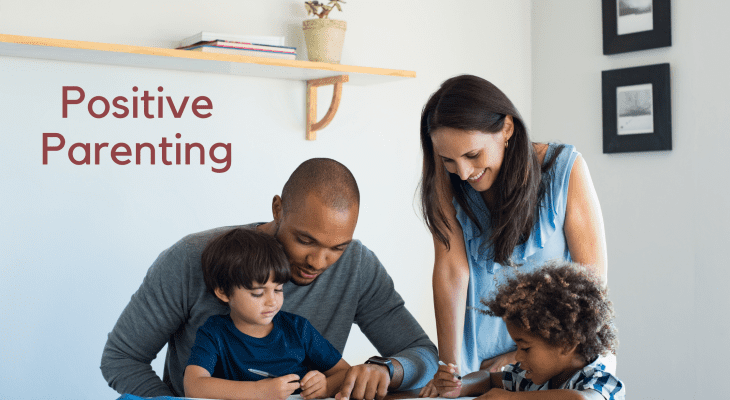How Do You Parent With Positivity?
Positive parenting is a method used to help kids of all ages grow into healthy adults. By using positive behavior and discipline, kids are less likely to act out.
Parenting can be extremely challenging during multiple stages of a child’s development. The principles of positive parenting are based on the child’s intention. If parents assume children are born with good intentions, their behavior is often productive.
Positive Parenting Techniques for Resilient Kids
Resilience is a skill that every child and adult needs to succeed in life. Without resilience, an individual can face tremendous anxiety even at the thought of failure. To experience new opportunities and growth, several positive parenting techniques can be used.
1.) Build a connection. Parents who build a relationship based on respect and cooperation often experience an easier time. By talking through a problem and examining all the options available, children can learn how to process their emotions.
2.) Be firm, but calm. Setting boundaries is a key aspect of parenting. Without clear limits, children are more susceptible to danger. Regardless of how critical the boundary is to a child’s safety, the parent’s behavior must be consistent. If a boundary has been broken, parents are advised to explain why this boundary is there in addition to disciplining the child.
3.) Use appropriate consequences. By using the “the time must fit the crime” attitude, consequences should be based on the severity of misbehavior. A teenager that drinks and drives, may not grasp the severity of the situation if they are still allowed to drive in the morning. On the reverse spectrum, if a child is screamed at for staining his shirt, this may cause unnecessary anxiety.
4.) Offer positive reinforcement. Positive reinforcement shows a child they are doing well. If a child scores a high grade or cleans the kitchen, a parent’s kind words can help reinforce good behavior. It may be tempting to only comment on poor behavior, but by pointing out their talents and good character, can build natural self-esteem.
5.) Empathize. Childhood and adolescence is a difficult time. Mood swings and unknown expectations are all part of growing up. Being able to understand the individual situation that causes good or bad behavior is valuable for both parents and children. By demonstrating keen listening skills and validating their emotions, parents can closely bond with their kids.
Positive parenting does not mean consequences are off the table. Positive parenting focuses on rewarding good behavior while having consistent consequences that make sense. When a child clearly understands the rules and expectations, they can act with confidence.
A resilient child is able to face adulthood with positive self-assurance; employing tips like those above can help improve your chances of developing this trait in your own children.
Disclaimer: The information posted on this page is for educational purposes only. If you need medical advice or help with a diagnosis, contact your medical professional.


